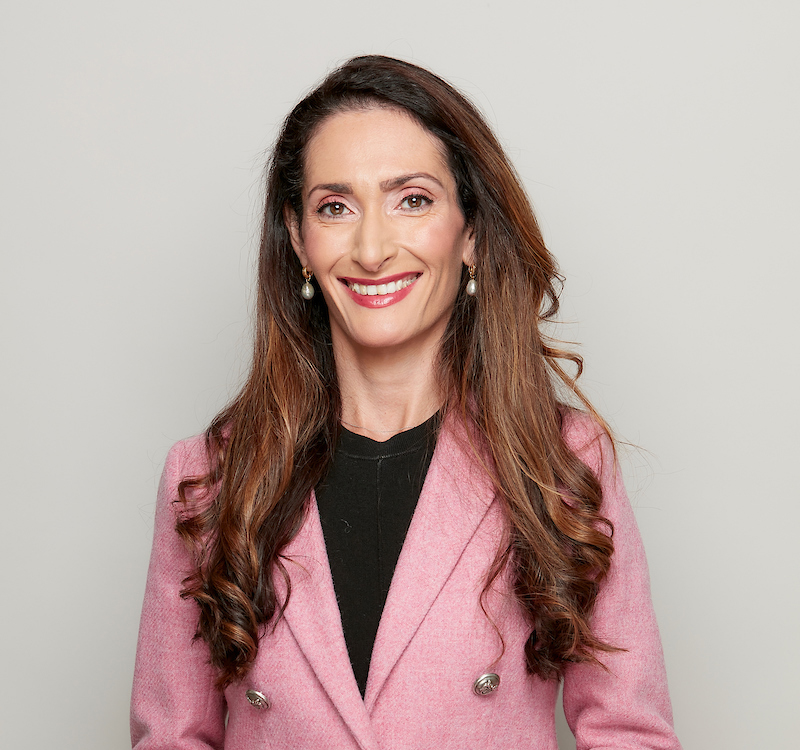 I’m originally from Bulgaria and I moved to the UK 10 years ago. I live in London with my Canadian-born husband Robert and our 2.5 year old daughter Kaia.
I’m originally from Bulgaria and I moved to the UK 10 years ago. I live in London with my Canadian-born husband Robert and our 2.5 year old daughter Kaia.We are the quintessential international family – we love the metropolitan London life and the city’s interconnectedness makes for the perfect base from which to explore the world, which we love.
My move into the pharmaceutical industry happened a bit by chance. I started my career in FMCG marketing and after working for AB-InBev and Heineken in Bulgaria, I moved to London to pursue an MBA (Master of Business Administration) degree. I joined Johnson & Johnson via their MBA graduate scheme, doing a couple of rotations in different business departments and ended up in Oncology.
I subsequently joined MSD in a Women’s Health marketing role and fell in love with the therapy area. I’ve worked in sales, marketing and franchise management in Women’s Health and through the spin-off of Organon, I started a career in commercial operations. I currently head the Commercial Operations functions across the 11 markets that include our UK, Europe North & Israel cluster. I like to say it’s like running ‘the engine’ of the organisation. No day is the same, the experience is very diverse and the learnings are immense.
I have to admit that I am a planner. I have always had a clear vision of where I want to go and whilst there have been changes along the way, I have broadly stuck to my plan. I knew I wanted to experience life in a different country, to explore different cultures and to make a difference through the work I do. I am fortunate to be in a position where I can enjoy all of these experiences.
Who hasn’t experienced challenges? In a way I am pleased I’ve had set-backs. One of the biggest lessons I’ve learned professionally is to embrace and learn from challenges, to take that learning and apply it to progress. It’s that mindset that has served me well, taught me resilience and helped me grow.
If you had asked me this question a few years ago, I would have probably shared a professional example. Today my biggest achievement is my little girl. Seeing her grow and flourish is what motivates me every day and motherhood has given me another perspective on what having a career is all about. I’ve always been a passionate advocate for gender parity but working for a women’s health company has made it even easier to connect what I do on a day-to-day basis with my higher purpose. I know that by helping address unmet female healthcare needs, I am contributing to making the world a better place for women, including my daughter, and it feels good.
You do not have to suffer in silence. I remember launching a menopause product seven years ago in what was a very tough marketplace at the time, full of misconceptions and very much under looked. Things are different now and the mood is changing. Women are generally more outspoken about the challenges they face and this will inevitably change the provision of healthcare solutions for women. The key is to feel empowered to ask for help.
Absolutely. We have a role to play to ensure the workplace environment is supportive for all employees, including menopausal women. It is now that we need to move the needle, so our daughters don’t have to feel uncomfortable in the workplace in the future. Part of it is creating an atmosphere of openness and dialogue about female health challenges, including the menopause. We could go even further and look to educate our employees by putting forward guidelines addressed at both employers and menopausal women, to ensure both sides are part of the solution. Training for management and flexibility in work hours are some further possible suggestions to consider.
Sadly, speaking about any health related topic that’s perceived as a ‘female problem’ is generally taboo. Whether it’s menopause, PMS or pregnancy, we seem to shy away from acknowledging that these health challenges are an inevitable part of women’s lives. It makes people feel uncomfortable. Menopause in particular isn’t well understood, it’s often the topic of jokes and stereotypes. In the workplace, the universal approach has often been ‘don’t ask, don’t tell.’ We need to be more outspoken about the menopause and other female health challenges in order to normalise them.
I am a driven individual and sometimes put too much pressure on myself. I am still learning to manage that but one piece of advice would be to remember that life is not a sprint, but a marathon. It’s OK to take a break and take it easy. A plan is there to guide you but your timelines and priorities can shift and that’s more than fine as long as you enjoy what you do and you feel that you are growing.
I continue to enjoy my professional life as a ‘Founder’ of Organon. It’s so exciting to be part of the formative early years of what, I am sure, will be an incredibly successful organisation. As we mature, we continue to invest in organisation-wide support networks for employees. I have been fortunate to be selected as the Europe & Canada Lead for our biggest employee resource group, focused on supporting gender equity across Organon. I am excited about the difference I know we can make by investing in diversity & inclusion initiatives in this space.
